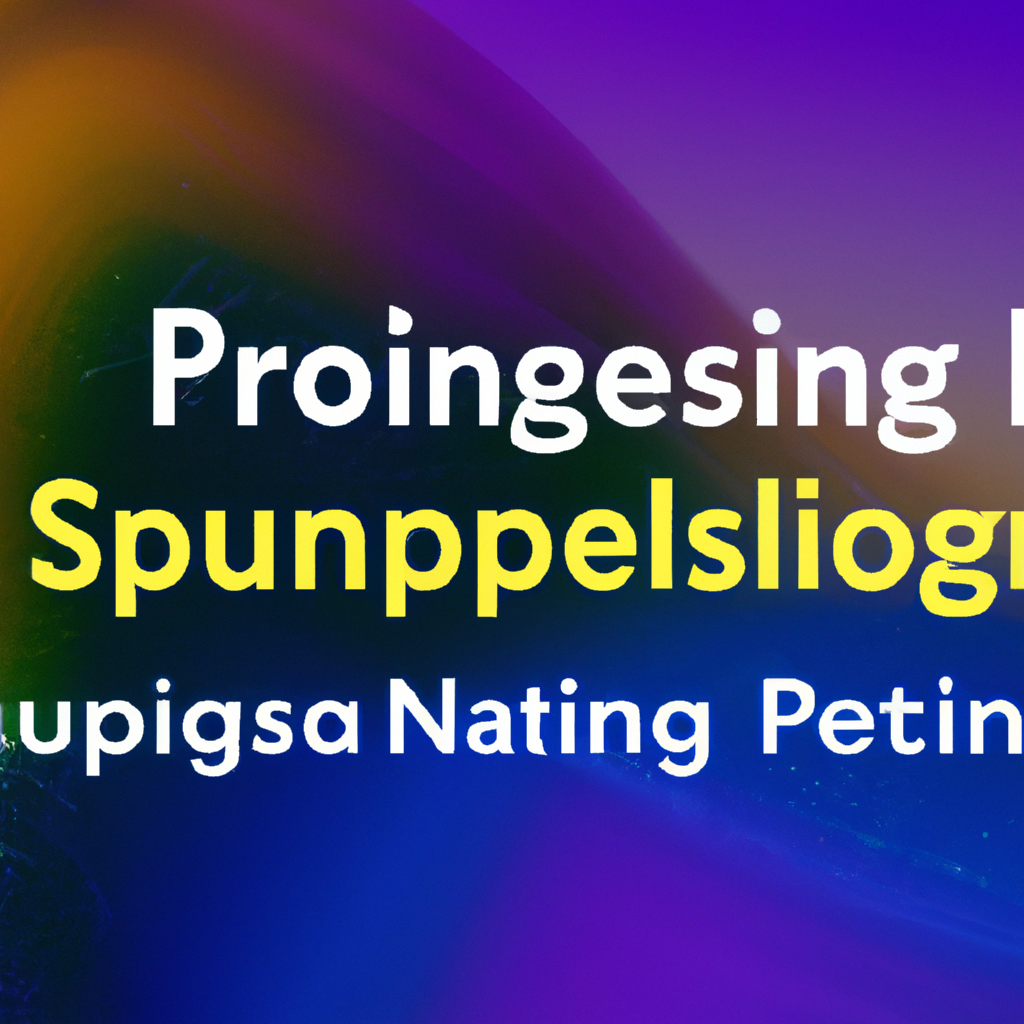Exploring the Potential of Natural Language Processing in Text Summarization
Table of Contents
Exploring the Potential of Natural Language Processing in Text Summarization
# Introduction
In the ever-expanding digital age, the amount of textual information available is growing exponentially. With the flood of information, it becomes increasingly challenging for individuals to absorb and comprehend the vast amounts of text. This has led to the emergence and importance of text summarization techniques. Natural Language Processing (NLP), a subfield of artificial intelligence and computational linguistics, has shown remarkable potential in automating the process of text summarization. This article aims to explore the possibilities and advancements of NLP in the field of text summarization, delving into both the classics and new trends in computation and algorithms.
# Classics of Text Summarization
Traditional approaches to text summarization primarily relied on extractive methods. Extractive summarization involves identifying and selecting the most salient sentences or phrases from the original text to form a concise summary. This approach is rooted in statistical and linguistic techniques. Initially, simple statistical methods, such as frequency-based ranking, were employed to identify important sentences based on their occurrence in the text. However, these methods often failed to capture the semantic meaning and coherence of the original text.
To address the limitations of frequency-based ranking, researchers turned to linguistic techniques, such as clustering and sentence similarity measures. Clustering algorithms group sentences together based on their semantic similarity, allowing for the selection of representative sentences from each cluster. Additionally, sentence similarity measures, such as the cosine similarity or the Jaccard coefficient, quantify the similarity between sentences, enhancing the selection process.
However, these classical approaches often struggled with the inherent complexities of language, such as sarcasm, ambiguity, and figurative speech. Moreover, they failed to produce coherent summaries, as they solely focused on individual sentences rather than capturing the overall context and structure of the original text.
# New Trends in Text Summarization
With the advent of NLP, newer approaches to text summarization have emerged, aiming to overcome the limitations of traditional methods. One such approach is abstractive summarization, which involves generating a summary by paraphrasing and rephrasing the original text. Abstractive summarization leverages advanced NLP techniques, such as deep learning and neural networks, to understand the semantics of the input text and generate human-like summaries.
Deep learning models, such as recurrent neural networks (RNNs) and their variants (e.g., long short-term memory networks or LSTMs), have shown promising results in abstractive summarization tasks. These models can learn to capture the contextual dependencies and generate summaries that are not limited to the exact wording of the source text. Additionally, attention mechanisms enable the models to focus on relevant parts of the text, further enhancing the quality of the generated summaries.
Another trend in text summarization is the utilization of transformer-based models, such as the famous BERT (Bidirectional Encoder Representations from Transformers). Transformers have revolutionized NLP tasks due to their ability to capture long-range dependencies and contextual information effectively. By fine-tuning these pre-trained models, researchers have achieved remarkable results in abstractive summarization, surpassing previous state-of-the-art methods.
Furthermore, recent advancements in reinforcement learning have also been applied to text summarization. By formulating the summarization task as a reinforcement learning problem, where the model learns to maximize a reward signal, researchers have achieved improved control over the generated summaries. This approach allows for the incorporation of domain-specific objectives, such as emphasizing certain aspects of the text or adhering to specific style guidelines.
# Challenges and Future Directions
Despite the significant progress made in text summarization using NLP techniques, several challenges persist. One major hurdle is the generation of coherent and contextually appropriate summaries. While abstractive methods have shown promise, they often struggle with generating summaries that align perfectly with human-written references. Balancing the trade-off between conciseness and preserving important details remains an active area of research.
Another challenge lies in handling domain-specific texts. General-purpose summarization models may struggle with domain-specific terminologies, requiring additional fine-tuning or domain-specific pre-training. Additionally, the lack of large-scale labeled datasets in specific domains poses a challenge for training effective summarization models.
The ethical implications of text summarization also merit attention. As summarization models become increasingly powerful, concerns arise regarding potential biases, misinformation propagation, and the impact on journalism and copyright. Ensuring transparency, fairness, and accountability in summarization systems should be a top priority for researchers and developers.
To address these challenges, future research directions could focus on developing hybrid approaches that combine the strengths of extractive and abstractive methods. By incorporating extractive techniques to identify salient information and abstractive methods to generate coherent summaries, researchers may achieve improved performance and better control over the summarization process.
# Conclusion
Natural Language Processing has revolutionized the field of text summarization, enabling the automation of the summarization process. The classics of computation and algorithms in text summarization, such as extractive methods, have paved the way for newer trends, including abstractive summarization and the utilization of transformer-based models. Despite the challenges that persist, advancements in NLP offer immense potential in generating concise and coherent summaries. As technology continues to progress, it is crucial to address ethical concerns and refine summarization techniques to ensure their responsible and effective use in various domains.
# Conclusion
That its folks! Thank you for following up until here, and if you have any question or just want to chat, send me a message on GitHub of this project or an email. Am I doing it right?
https://github.com/lbenicio.github.io

